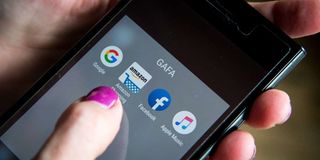Mobiles are barrier-breaker for the poor

In 10 years, what was once an object of luxury and privilege, the mobile phone, has become a basic necessity in Africa.
What you need to know:
- Mobile phone technology is emblematic of change, especially in building a financial floor for people who suffer the worst of the pangs of poverty.
- Africa is teeming with programmes that use phone technology to help pregnant women deliver in a hospital, thereby saving their lives and the lives of their precious babies.
At the 2007 Africa Summit, Rwandan president Paul Kagame said, "In 10 short years, what was once an object of luxury and privilege, the mobile phone, has become a basic necessity in Africa."
That statement rang true then, and a decade later, the mobile phone has become the spark that turbocharges development.
Three in every four Africans now have access to a mobile phone. The phone coverage is spreading fast to the outer reaches —the forgotten enclaves of our continent. It is often joked, although a truism, that more people have access to a phone than a toilet.
Mobile phone technology is emblematic of change, especially in building a financial floor for people who suffer the worst of the pangs of poverty. It is a technology that governments and NGOs promote as an imperative in lifting poor people from the sinkhole of poverty, provides a bridge to close the inequality gap, and is a means to financial inclusion.
M-Pesa account
Take, for example, Safaricom's M-Tiba social support programme. Individuals sign up to the programme, routinely deposit funds from their M-Pesa account, and use them as health insurance when needed. Charity organisations add to this fund, thereby ensuring that the millions of M-Tiba subscribers do not have to delay their visit to the doctor due to lack of money or are ruined by health expenses.
If an individual's insurance coverage is not enough to pay a medical expense, an M-Tiba account holder can solicit family and friends' help. The raised money goes directly to M-Tiba and can't be diverted to pay for anything else but health expenses.
Working in Kenya and Uganda, an international organisation called Living Goods uses mobile money to provide low-cost loans to small businesses that stock and sell good anti-malaria medicine. These small businesses are a source of legitimate, low-priced medicine to the community members.
By raising awareness of fake drugs and lowering the price of good antimalarial drugs, child mortality has reduced by more than a quarter.
Africa is teeming with programmes that use phone technology to help pregnant women deliver in a hospital, thereby saving their lives and the lives of their precious babies. Other mobile phone-based programmes enable payment of salary for health workers so that they do not have to leave their clinics to track their wages or lose it in the hands of corrupt officials.
These are a few examples from a long roster of examples that typify the marvel of mobile technology in changing Africa's social-economic contours, lending a hand to people struggling to crawl out of the pit of poverty, diseases, and ignorance.
For these innovations to continue to flourish, however, governments must foster a conducive ecosystem. They must ensure requisite legislation is in place, facilitate phone coverage across the country, and give the private sector a prominent seat at the discussion table.
[email protected] Twitter: @Samwambugu2





